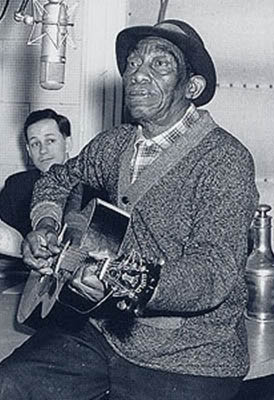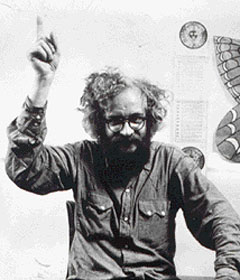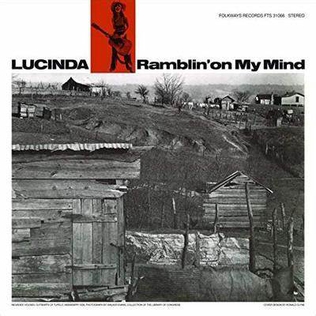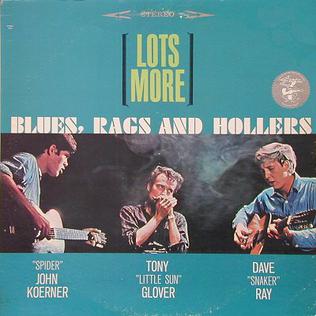Contents
The original anthology jump-started the folk music revival of the 1950s. In 1972, Moses Asch, interviewed by Sing Out! magazine, claimed that tapes for two additional volumes of the project had survived, although the documentation necessary to make a meaningful release of the volumes had been lost. Revenant Records worked with the Harry Smith Archive to recreate and release the fourth volume, associated by Smith with the classical element of earth. The extensive liner notes presented in a hardcover book were written by Dick Spottswood and John Fahey. [2]
Unlike the first set, Smith did not choose the selections for this set strictly from between "1927, when electronic recording made possible accurate music reproduction, and 1932, when the Depression halted folk music sales." [3] As a companion to his three two-album volumes from the original Anthology of American Folk Music categorized by Ballads, Social Music, and Songs, Smith chose "Labor Songs" as this volume's organizing principle. Smith included material released as late as 1940, with a selection of union songs making their first appearances for an Anthology set.
Reception
Writing for Allmusic, critic Richie Unterberger wrote of the album "It does differ from the first three volumes in its focus on a slightly later period, with all the tracks culled from the years 1928–1940. Lead Belly, Robert Johnson, Joe Williams, Bukka White, Memphis Minnie, and John Estes are all major blues artists; the Monroe Brothers, the Carter Family, Uncle Dave Macon, and the Blue Sky Boys all giant country/bluegrass pioneers; and the Hackberry Ramblers are one of the pre-eminent Cajun groups. A few of these songs are archetypes that have burned their way into the American collective musical consciousness: John Estes' "Milk Cow Blues," the Carter Family's "No Depression in Heaven," Joe Williams' "Baby Please Don't Go," and the Monroe Brothers' "Nine Pound Hammer Is Too Heavy." Other less famous performances are quite intriguing... At 28 songs spread over two CDs, it's a little shorter than might be expected for a box set, though as compensation, it's enclosed in a pretty incredible 96-page liner-note-sized hardcover book with writing by Dick Spottswood and John Fahey." [2]
In his The A.V. Club review, Joshua Klein wrote "Volume Four (Smith had originally promised six) is stylistically akin to the first three, with some of the artists from the earlier volumes making encore performances. As Spottswood notes, the two-disc set ignores several country developments, as well as the conspicuous invention of the electric guitar in the '30s. Fans can only hope that such key points of musical evolution will be displayed in future volumes, but as it stands, the 28 mostly Depression-era songs on Volume Four run the gamut from labor anthems to fiddle bands to ballads to blues to black gospel. It's another essential, timeless piece of the Americana puzzle, fitting nicely into the incomparable picture Smith painted." [4]

John Smith Hurt, better known as Mississippi John Hurt, was an American country blues singer and guitarist.

Delta blues is one of the earliest-known styles of blues. It originated in the Mississippi Delta and is regarded as a regional variant of country blues. Guitar and harmonica are its dominant instruments; slide guitar is a hallmark of the style. Vocal styles in Delta blues range from introspective and soulful to passionate and fiery.
The story of Tennessee's contribution to American music is essentially the story of three cities: Nashville, Memphis, and Bristol. While Nashville is most famous for its status as the long-time capital of country music, Bristol is recognized as the "Birthplace of Country Music". Memphis musicians have had an enormous influence on blues, early rock and roll, R&B, and soul music, as well as an increasing presence in rap.
Revenant Records is an American independent record label based in Austin, Texas, which concentrates on folk and blues. Revenant was formed in 1996 by John Fahey and Dean Blackwood. Revenant's 2001 box set, Screamin' and Hollerin' the Blues: The Worlds of Charley Patton, won three Grammy Awards in 2003.

Anthology of American Folk Music is a three-album compilation, released in 1952 by Folkways Records, of eighty-four recordings of American folk, blues and country music made and issued from 1926 to 1933 by a variety of performers. The album was compiled from experimental film maker Harry Smith's own personal collection of 78 rpm records.

Booker T. Washington "Bukka" White was an American Delta blues guitarist and singer.

Walter E. "Furry" Lewis was an American country blues guitarist and songwriter from Memphis, Tennessee. He was one of the early of the blues musicians active in the 1920s to be brought out of retirement and given new opportunities to record during the folk blues revival of the 1960s.

Harry Everett Smith was an American polymath, who was credited variously as an artist, experimental filmmaker, bohemian, mystic, record collector, hoarder, student of anthropology and a Neo-Gnostic bishop.
The Memphis Jug Band was an American musical group active from the mid-1920s to the late-1950s. The band featured harmonica, kazoo, fiddle and mandolin or banjolin, backed by guitar, piano, washboard, washtub bass and jug. They played slow blues, pop songs, humorous songs and upbeat dance numbers with jazz and string band flavors. The band made the first commercial recordings in Memphis, Tennessee, and recorded more sides than any other prewar jug band.

Ramblin' on My Mind is the debut studio album by American singer-songwriter Lucinda Williams, released in 1979, by Folkways Records.

Robert Timothy Wilkins was an American country blues guitarist and vocalist, of African-American and Cherokee descent. His distinction was his versatility: he could play ragtime, blues, minstrel songs, and gospel music with equal facility.

Richard K. "Dick" Spottswood is an American musicologist and author from Maryland, United States who has catalogued and been responsible for the reissue of many thousands of recordings of vernacular music in the United States.

Jo Ann Kelly was an English blues singer and guitarist. She is respected for her strong blues vocal style and for playing country blues guitar.

Screamin' and Hollerin' the Blues: The Worlds of Charley Patton is a boxed set collecting remastered versions of the recorded works of blues singer Charley Patton, with recordings by many of his associates, supplementary interviews and historical data. The set won three Grammy awards, for Best Historical Album, Best Boxed or Special Limited Edition Package, and Best Album Notes.
"Last Fair Deal Gone Down" is a song by American blues musician Robert Johnson. It was recorded during Johnson's third recording session in San Antonio, Texas, on November 27, 1936. The song was released on a 78 rpm record in April the following year by Vocalion Records as the second side of "32-20 Blues". It was included on the first reissue of Johnson's songs, King of the Delta Blues Singers in 1961. In 1990, it was released on compact disc as part of The Complete Recordings box set, and in 2000 it was included in Harry Smith's Anthology of American Folk Music, Vol. 4.

Lots More Blues, Rags and Hollers is an album by the blues trio Koerner, Ray & Glover, released in 1964.
The McGee Brothers were an American old-time performing duo of brothers Sam McGee and Kirk McGee. Sam typically played guitar and Kirk usually played banjo or fiddle, although they were both proficient in multiple string instruments. The McGee Brothers were one of the most enduring acts on the Grand Ole Opry during the show's first fifty years. They made their initial appearance on the Opry in 1926 and the following year joined Uncle Dave Macon's band, the Fruit Jar Drinkers. In the 1930s, the McGees teamed up with early Opry fiddler Arthur Smith to form a string band known as the "Dixieliners," and in the 1940s they played and toured with Bill Monroe and His Bluegrass Boys and several other notable acts.

The Country Blues is a seminal album released on Folkways Records in 1959, catalogue RF 1. Compiled by Samuel Charters from 78-rpm recordings, it accompanied his book of the same name to provide examples of the music discussed. Both the book and the album were key documents in the American folk music revival of the 1950s and 1960s, and many of its songs would either be incorporated into new compositions by later musicians, or covered outright.













